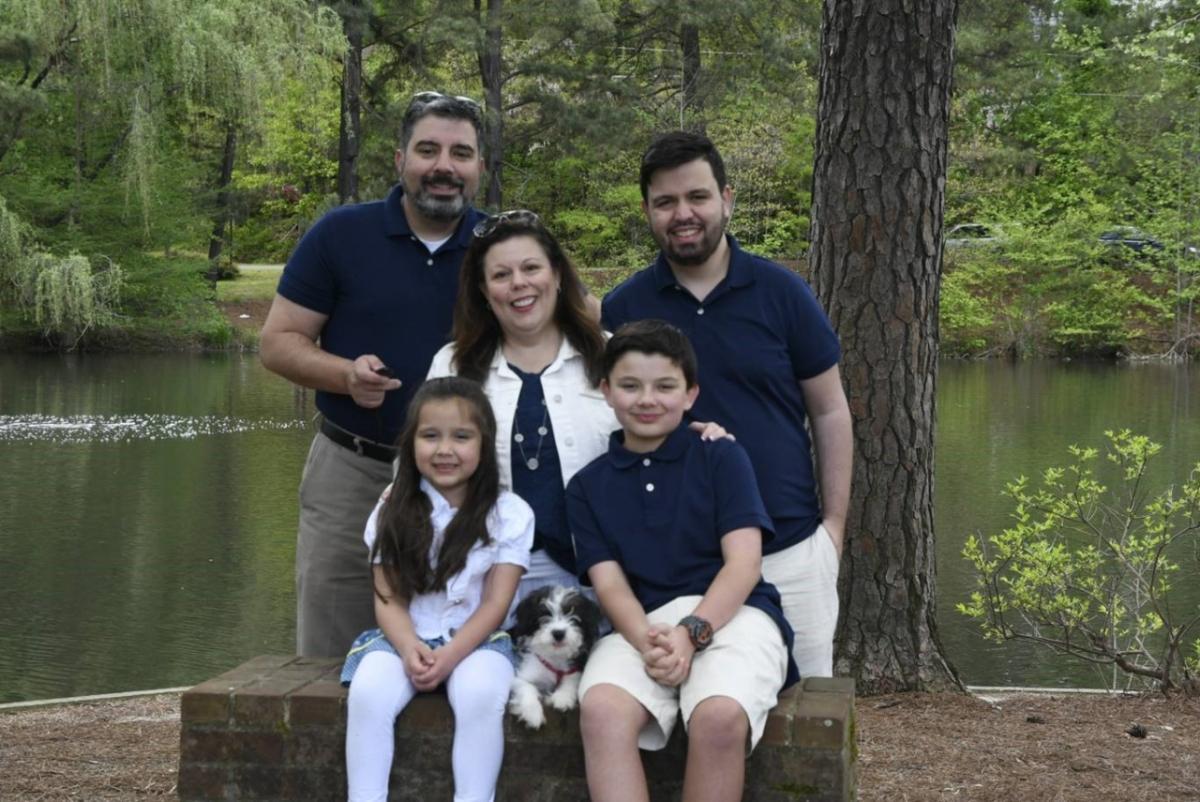Booz Allen VP Michael Ruiz Talks Cuban American Upbringing and Turning Obstacles into Superpowers

Every year from September 15 to October 15, National Hispanic Heritage Month honors the cultures and histories of Americans whose ancestors come from Central and South America, the Caribbean, Mexico, and Spain.
For this year’s Hispanic Heritage Month, Booz Allen is celebrating under the theme of “Hispanic Americans: A History of Serving Our Nation." Many of the firm’s Hispanic American employees have reflected on their navigation of two cultures—and how this experience has given them the powerful ability to adapt to changing and unforeseen circumstances.
Vice President Michael Ruiz is one of these employees. Ruiz helps lead the firm’s work in digital transformation focused on analytics and cyber and is an executive sponsor of Booz Allen’s Latin American Network.
Here, Ruiz discusses his Cuban American upbringing, the challenges of growing up with dyslexia (and how he was able to turn it into a “superpower”) and increasing Latino representation in the technology workforce.
One childhood, two cultures
Growing up in New Jersey, Ruiz was surrounded by American culture in school and beyond. The inside of his childhood home was a different story.
“It was Cuba,” Ruiz joked. “My mother and father are both Cuban. My grandparents, all Cuban. We were only allowed to speak Spanish at home. I have had a slipper fly from across the room on more than one occasion for speaking English at home.”
The dual cultures gave Ruiz a unique viewpoint on the world and fostered a lifelong ability to adapt.
“I think adaptability is probably one of the things that I think Latinos in particular, but just about all immigrant groups, bring from a diversity standpoint.”
Thinking in a different language
Growing up, Ruiz had to apply the same adaptability to his schoolwork. Reading and understanding concepts didn’t come easy, and often teachers ascribed his difficulties to the fact that English was his second language—even though he spoke it fluently.
People frequently asked him, "What language do you think in?”
“I never understood that question because I don't think in a language. I don't think in words, I think in pictures,” he said.
Years later, Ruiz discovered he had grown up with undiagnosed dyslexia and that his efforts to adapt to his learning style uncovered a rare gift. In programming, for example, where others see lines of code, he sees what the code represents—sometimes as “objects floating in the sky.”
“I don’t see dyslexia as disability but as an ability to think differently,” Ruiz said. “My two youngest children are dyslexic—we tell them they have the gift of dyslexia. That gift comes with a need to learn differently, but at the end of the day, they have superpowers that others don’t. We focus on our strengths and our abilities, not a lack of ability based on current norms.”
Bringing others into innovation
Without mentors, like a computer hobbyist next door who helped him foster a love for programming and coding, Ruiz might not have embarked upon his current career path leading analytics and digital transformation at Booz Allen. These connections sparked an interest that led to Ruiz winning a statewide programming competition at 13 and getting his first job as an assistant research engineer with the Franklin Institute Science Museum.
How can Latinos, who currently make up 18% of the country’s population but just 8% of the tech workforce, follow Ruiz’s path to achieve greater STEM representation?
Ruiz believes more Latinos in executive leadership positions will help. He also sees the potential of an apprenticeship model, like what’s done in the electrical and plumbing trades, for attracting individuals with diverse skillsets into the technical fields.
“That might be a way get someone in the door where they can start to see themselves in a space that is larger than what they could ever imagine for themselves,” he said.
Learn more about diversity, equity, and inclusion and multiculturalism at Booz Allen.

